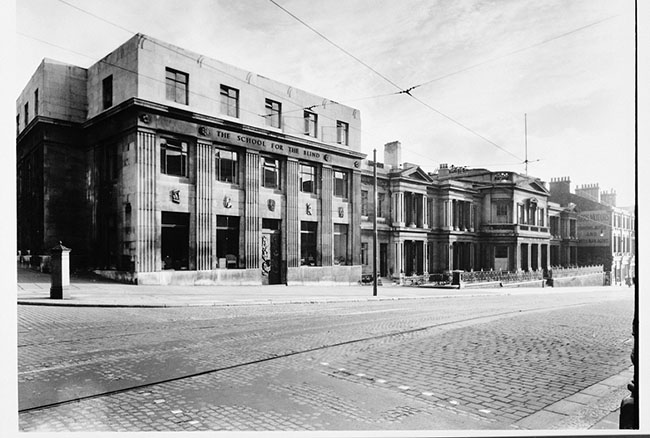 THE fascinating, 200 year-old story of the UK’s first school for blind people is being told in a new exhibition at the Museum of Liverpool.
THE fascinating, 200 year-old story of the UK’s first school for blind people is being told in a new exhibition at the Museum of Liverpool.
The Blind School: Pioneering People and Places delves into the school’s remarkable history, which was founded by the blind abolitionist and human rights campaigner Edward Rushton.
Mr Rushton had first hand experience of slavery through working on slave ships. His compassion for, and proximity to, enslaved people led him to contract a disease that cost him his sight.
As a result of his experiences of blindness and poverty and realising the poor treatment and life chances of many less wealthy blind people, he founded the school to offer training and skills.
The exhibition gives a moving insight into the daily lives of the pupils, the strict rules that they had to follow, how they crafted superb objects for sale, their leisure pursuits, and how some went on to earn a living.
Unique objects from the museum’s collection alongside loans from individuals, personal stories and a film made in partnership with students from St Vincent’s School for Sensory Impairment, West Derby, are among the exhibits.
Central to the story are the three purpose-built buildings that housed the school.
Kay Jones, curator of Urban Community History, said: “The story of Liverpool’s Royal School for the Blind is not only a fascinating local story but has a much broader relevance too. The school has been through many changes and this exhibition draws on these to reflect changing attitudes in society.
“This remarkable, pioneering school was set up in Liverpool by blind and sighted individuals. As only the second school of its kind in the world, it led the way in educating and empowering blind people. It has changed hundreds of people’s lives in its almost 300 year history, and continues to do so.”
The exhibition is run in partnership with Accentuate’s History of Place project, which explores 800 years in the lives of deaf and disabled people.
Esther Fox, head of the Accentuate Programme, said: “Our History of Place project has been working with communities across the country to shine a spotlight on 800 years of history, specifically telling the stories of deaf and disabled people.”
The exhibition, supported by the Heritage Lottery Fund, runs until 15 April.

